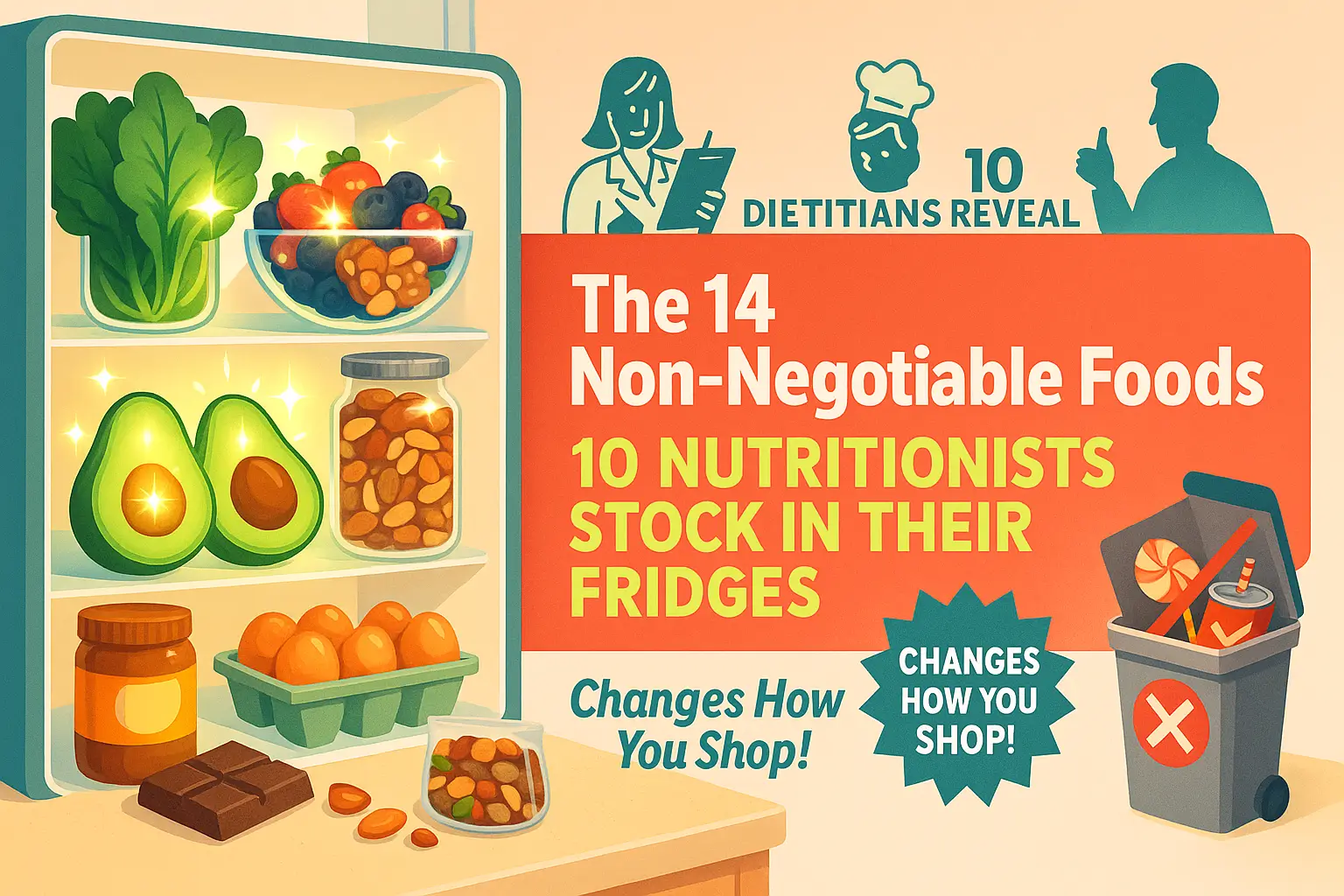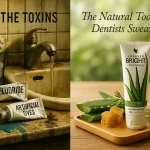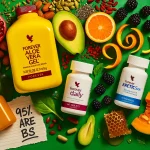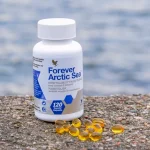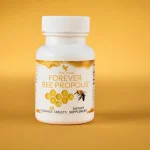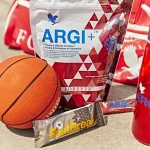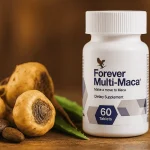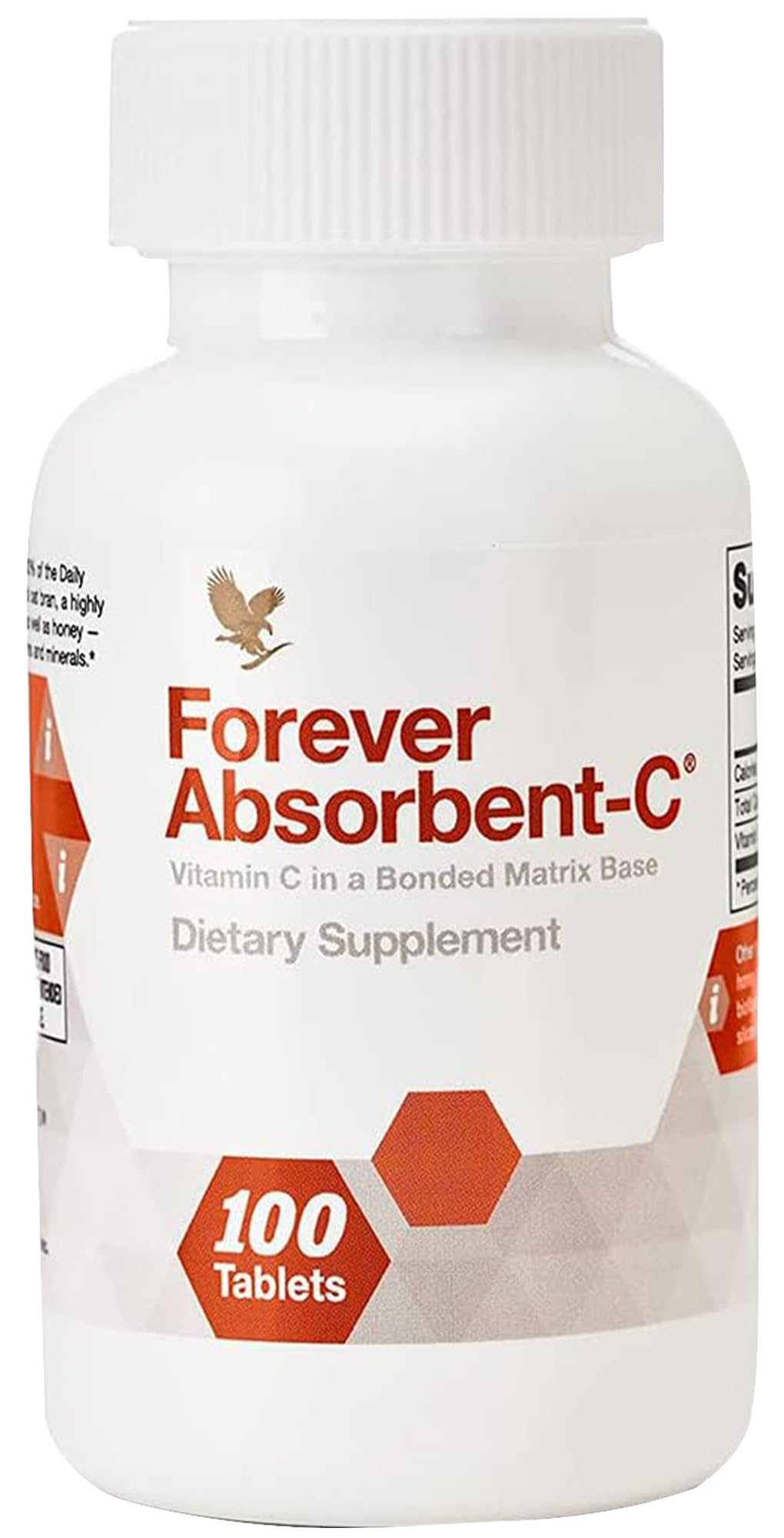Let’s be honest for a second about the foundational eating. Navigating the world of health and nutrition can feel like trying to find your way through a dense fog, right? One minute, coffee is a superfood; the next, it’s public enemy number one. Eggs are in, then they’re out, then they’re back in again. You see headlines screaming about the “miracle” benefits of one exotic berry while another article tells you to ditch fruit entirely.
- The Problem: Why “Diet Culture” Is Failing You
- The Philosophy: Building Your Foundational Eating Pattern
- Pillar 1: Plant Powerhouses – The Cornerstone of Vitality
- Pillar 2: Gut Health Heroes – The Epicenter of Wellness
- Pillar 3: Quality Proteins & Healthy Fats – Building Blocks & Brain Fuel
- Pillar 4: Hydration & Foundational Support – The Unsung Heroes
- Putting It All Together: Practical Application & Mindset for Success
- Bridging the Gap: Why Smart Supplementation Makes Sense in the Modern World
- Your Journey to Lasting Vitality Starts Now
It’s confusing. It’s exhausting. And frankly, it often leaves you feeling more stressed about food than empowered by it.
I get it. You’re trying to do the right thing for your body. You want more energy, maybe shed a few pounds, protect yourself against future health worries, and just feel better day-to-day. But the constant barrage of conflicting advice, fad diets promising instant results (that never last), and the pressure to eat “perfectly” can be overwhelming.
It often leads to what psychologists call decision fatigue – you get so tired of trying to figure it all out that you either give up or jump onto the next restrictive trend, hoping this will be the one.
What if I told you there’s a simpler, more sustainable, and far more enjoyable way?
What if, instead of chasing the latest “superfood” or signing up for another punishing diet plan, we focused on building a solid foundation? A core way of eating built on nutrient-dense, science-backed foods that nourish your body from the inside out, consistently, day after day.
My name is Lusabara, and I’ve spent years diving deep into not just what we eat, but why we make the choices we do, and how food truly impacts our well-being – from our cells to our state of mind. As a health enthusiast, I’ve seen firsthand how cutting through the noise and focusing on fundamentals can transform health.
In this comprehensive guide, we’re going to do exactly that. We’ll leverage insights from nutrition experts, dive into the supporting science (don’t worry, I’ll make it easy to understand!), and identify the core food groups that should form the bedrock of your diet. More importantly, we’ll explore how these foods work their magic and why they’re critical for long-term vitality.
And because I believe in a holistic approach – one that acknowledges the realities of modern life – we’ll also touch upon how high-quality, targeted supplementation can strategically bridge nutritional gaps and amplify your results, ensuring your body gets the consistent support it needs to thrive.
Forget the fads. Forget the guilt. Let’s build your foundation for lasting health, together.
The Problem: Why “Diet Culture” Is Failing You
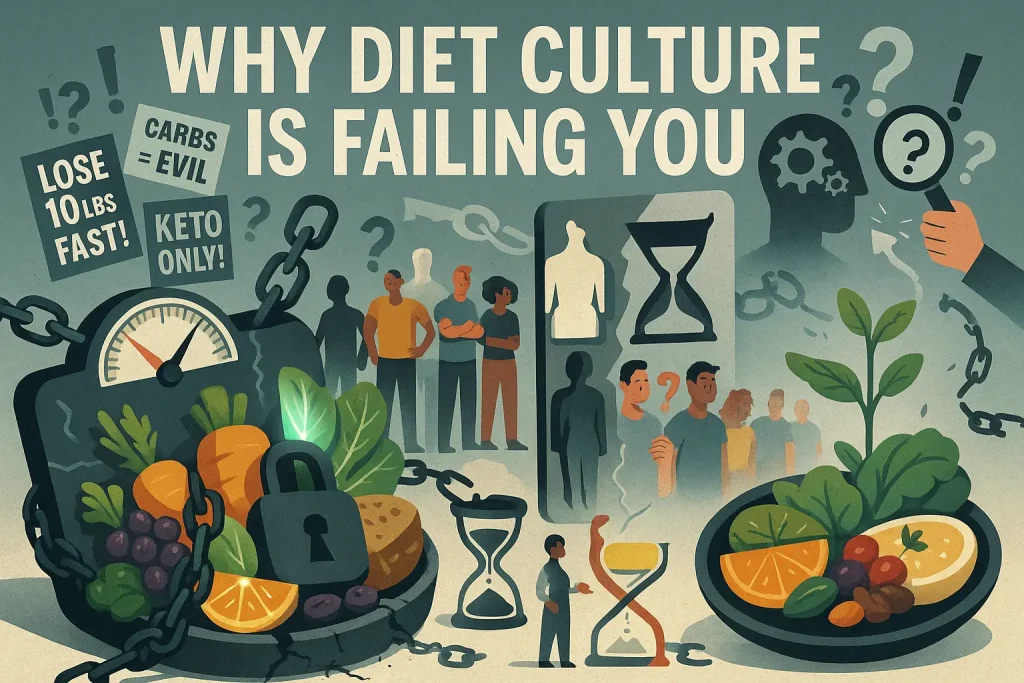
Before we dive into the “what to eat,” let’s quickly address the elephant in the room: the modern “diet culture.” It’s a multi-billion dollar industry built on promising quick fixes and often preying on our insecurities. Here’s why it often sets us up for failure:
- Focus on Restriction, Not Nourishment: Most diets emphasize what you can’t eat. This deprivation mindset can lead to cravings, feelings of guilt, and an unhealthy relationship with food. True health is about adding nourishing foods, not just subtracting “bad” ones.
- One-Size-Fits-All Fallacy: Your body is unique. Your genetics, lifestyle, activity level, stress levels, and even your gut microbiome influence your nutritional needs. Yet, fad diets often push a single template onto everyone, ignoring bio-individuality.
- Short-Term Thinking: Diets are typically temporary. You “go on” a diet, reach a goal (maybe), and then… what? Without building sustainable habits, people often revert to old patterns, leading to the frustrating yo-yo effect. Behavioral economics shows us we often prioritize immediate gratification over long-term benefits, which diets exploit and then fail to sustain.
- Ignoring the Bigger Picture: Health isn’t just about weight. It’s about energy, mood, sleep quality, cognitive function, immune resilience, and long-term disease prevention. Overly restrictive diets can sometimes negatively impact these other crucial areas.
- Information Overload & Analysis Paralysis: As mentioned, the sheer volume of conflicting information makes it hard to know who or what to trust. This often leads to “analysis paralysis,” where we get stuck and do nothing, or jump from one piece of advice to another without consistency.
We need a paradigm shift – away from restrictive dieting and towards foundational eating.
The Philosophy: Building Your Foundational Eating Pattern
Imagine building a house. You wouldn’t start with the fancy roof tiles or the designer paint colors, would you? You’d start with a strong, solid foundation. The same principle applies to your health.
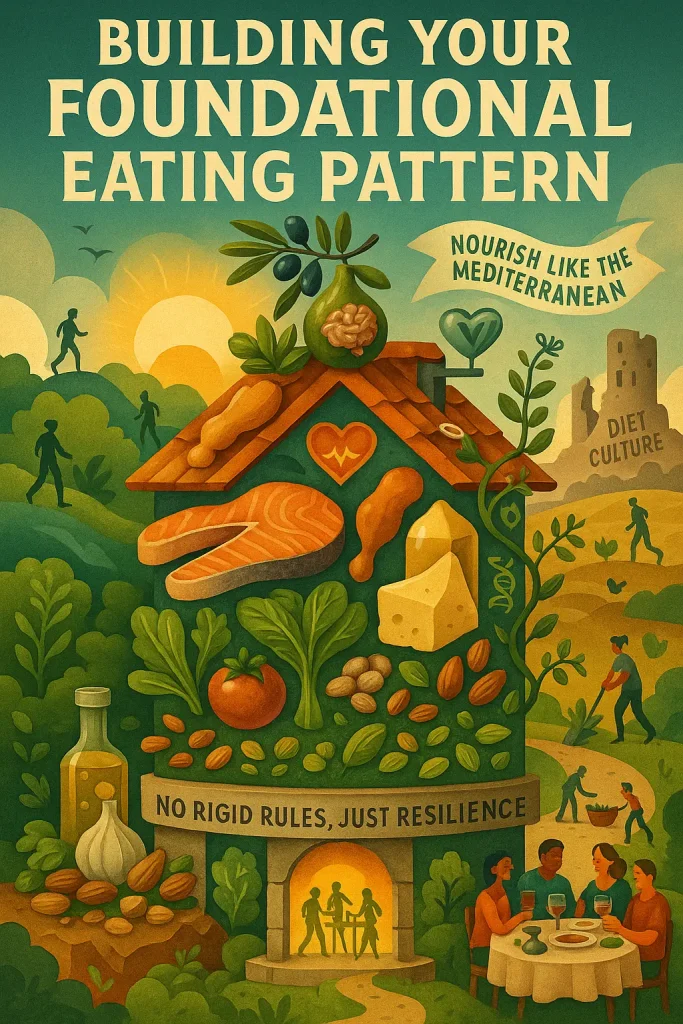
Foundational eating isn’t a “diet” with rigid rules and end dates. It’s a pattern, a flexible framework focused on consistently including foods that provide the essential building blocks your body needs to function optimally.
One of the most researched and respected models for this is the Mediterranean-style eating pattern. Countless studies have linked it to remarkable health outcomes, including:
- Reduced risk of heart disease (Source: New England Journal of Medicine, PREDIMED study)
- Lower rates of certain cancers (Source: British Journal of Cancer)
- Protection against type 2 diabetes (Source: Diabetes Care)
- Improved brain health and reduced risk of cognitive decline (Source: Neurology)
- Increased longevity (Source: British Medical Journal)
What does this pattern look like? It emphasizes:
- Abundant Plant Foods: Vegetables, fruits, legumes (beans, lentils, peas), nuts, seeds, and whole grains form the base.
- Healthy Fats: Extra virgin olive oil is the principal fat source. Fatty fish, nuts, and seeds also contribute vital fats.
- Moderate Protein: Fish and poultry are consumed more often than red meat. Eggs and dairy (especially fermented like yogurt and cheese) are included in moderation.
- Limited Intake: Red meat, processed meats, sugary drinks, and highly processed foods are consumed infrequently.
- Lifestyle Factors: It often includes regular physical activity, shared meals, and moderate wine consumption (though this last point is debated and not essential for the benefits).
This isn’t about eating only Mediterranean foods; it’s about embracing the principles of prioritizing whole, nutrient-dense foods.
A key concept here is nutrient density – getting the most vitamins, minerals, fiber, and beneficial phytonutrients per calorie. Think vibrant vegetables versus sugary snacks.
And let’s bring in some crucial psychological wisdom: The 80/20 Rule. Aim to eat according to these foundational principles 80% of the time. That leaves 20% for flexibility – for celebrations, treats, or simply those times when life happens.
This approach, recommended by dietitians like Erin Holley, RD, quoted in the original piece, prevents the all-or-nothing thinking that derails so many efforts. It makes healthy eating sustainable and enjoyable, not a source of stress.
Now, let’s break down the core pillars of this foundational approach, drawing from expert insights and scientific evidence.
(Before we proceed: A Quick Glossary Refresher)
- Antioxidants: Molecules that neutralize harmful “free radicals,” protecting your cells from damage (oxidative stress). Think vitamins C, E, beta-carotene, selenium, and many plant compounds.
- Phytonutrients/Phytochemicals: Compounds produced by plants (like polyphenols, flavonoids, carotenoids) that offer health benefits, often acting as antioxidants or anti-inflammatory agents. Color is often a clue!
- Omega-3 Fatty Acids: Essential polyunsaturated fats (especially EPA and DHA found in fish) crucial for heart health, brain function, and reducing inflammation. ALA is a plant-based form (flax, chia, walnuts).
- Fiber: Indigestible carbohydrates vital for digestion, gut health (feeding beneficial bacteria), blood sugar control, and satiety. Soluble fiber dissolves in water (oats, beans); insoluble fiber adds bulk (whole grains, vegetables).
- Probiotics: Live beneficial bacteria (found in fermented foods or supplements) that support a healthy gut microbiome.
- Prebiotics: Types of fiber that act as food for beneficial gut bacteria (found in onions, garlic, bananas, oats, etc.).
Pillar 1: Plant Powerhouses – The Cornerstone of Vitality
If there’s one non-negotiable aspect of foundational eating, it’s loading up on plants. They are nutritional treasure chests, packed with fiber, vitamins, minerals, and an incredible array of phytonutrients that protect and nourish your body.
- Leafy Greens (Spinach, Kale, Chard, Red Leaf Lettuce, Arugula, etc.):
- Why They’re Foundational: These are arguably the most nutrient-dense foods on the planet. They’re bursting with Vitamin K (essential for blood clotting and bone health), Vitamin A (vision, immune function), Vitamin C (antioxidant, collagen production), folate (cell growth, DNA repair), magnesium (energy production, muscle function), and potassium (blood pressure regulation).
- The Science: The famous MIND diet study (Alzheimer’s & Dementia, 2015) found that people who ate at least one serving of leafy greens per day had significantly slower rates of cognitive decline, equivalent to being 11 years younger mentally.
Spinach and other greens are rich in lutein and zeaxanthin, carotenoids shown to protect against age-related macular degeneration (Nutrients, 2018). Red leaf lettuce, as highlighted by Lindsay Malone, RDN, offers both red and green phytonutrients, boosting cellular protection. - Practical Tips: Don’t just think salads! Blend spinach into smoothies (you won’t taste it!), sauté kale with garlic and olive oil, wilt chard into soups or stews, use large lettuce leaves as wraps. Aim for variety.
- Cruciferous Vegetables (Broccoli, Cauliflower, Brussels Sprouts, Cabbage, Bok Choy):
- Why They’re Foundational: This family is famous for compounds called glucosinolates, which break down into isothiocyanates (like sulforaphane in broccoli sprouts). They are also rich in fiber, Vitamin C, and Vitamin K.
- The Science: Isothiocyanates have demonstrated potent anti-cancer properties in numerous laboratory and some human studies, potentially by enhancing detoxification pathways and inducing cancer cell death (Molecular Nutrition & Food Research, 2018). Evangeline Mantzioris, PhD, highlighted their anti-carcinogenic potential. Regular intake is linked to reduced inflammation and better cardiovascular health markers.
- Practical Tips: Roasting brings out their natural sweetness (toss with olive oil, salt, pepper). Steam lightly to preserve nutrients. Shred cabbage for slaws or add to stir-fries. Add cauliflower rice to meals. If you find them bitter (some people are genetically sensitive), try pairing them with strong flavors or cooking methods like roasting.
- Colorful Vegetables (Beets, Carrots, Sweet Potatoes, Bell Peppers, Tomatoes):
- Why They’re Foundational: The vibrant colors signal diverse phytonutrients! Beets provide nitrates; orange/yellow veggies (carrots, sweet potatoes, peppers) offer beta-carotene (a Vitamin A precursor); tomatoes are packed with lycopene. They also contribute fiber, potassium, and various vitamins.
- The Science: Dietary nitrates from beets can be converted to nitric oxide in the body, which helps relax blood vessels and improve blood flow, potentially lowering blood pressure (Journal of Nutrition, 2013).
Beta-carotene acts as an antioxidant and is vital for vision, immune health, and skin integrity (Journal of the American Academy of Dermatology, 2012). Lycopene, particularly abundant in cooked tomatoes (especially with oil, enhancing absorption), is a powerful antioxidant linked to reduced risk of heart disease and certain cancers, notably prostate cancer (Nutrients, 2020).
Sweet potatoes, a staple in the long-lived Okinawan population, offer complex carbs, fiber, and a huge dose of Vitamin A. - Practical Tips: Roast beets (or buy pre-cooked). Snack on carrots with hummus. Bake sweet potatoes whole or cut into wedges for healthy fries. Add bell peppers to stir-fries, fajitas, or salads. Use canned tomatoes (rich in lycopene) for sauces and stews. Remember Anastasia Snelling, PhD, RD’s point about lycopene’s heart and cancer benefits.
- Berries & Cherries (Blueberries, Strawberries, Raspberries, Blackberries, Cherries):
- Why They’re Foundational: These are antioxidant superstars, particularly rich in anthocyanins (giving them their red/blue/purple hues) and Vitamin C. They offer fiber and are relatively low in sugar compared to other fruits.
- The Science: Anthocyanins possess potent anti-inflammatory and antioxidant properties. Studies suggest regular berry consumption supports brain health and may slow cognitive decline associated with aging (Annals of Neurology, 2012).
Blueberries, as noted by Lina Begdache, PhD, RDN, may boost nitric oxide, helping blood pressure. Tart cherries contain compounds shown to reduce muscle soreness and inflammation after strenuous exercise (Journal of the International Society of Sports Nutrition, 2010) and may improve sleep quality due to natural melatonin content. - Practical Tips: Add berries to oatmeal, yogurt, or smoothies. Eat them by the handful as a snack. Keep frozen berries on hand (often just as nutritious, sometimes more so, than fresh, and available year-round). Cherries, as Mantzioris noted, are delicious and beneficial.
- Other Fruits (Apples, Pears, Oranges, Bananas, Pineapples, etc.):
- Why They’re Foundational: While berries get a lot of hype, don’t neglect other fruits! They provide essential vitamins (like Vitamin C in citrus), minerals (potassium in bananas), fiber (especially in skins of apples/pears), and various phytonutrients.
Pineapples, as noted by Snelling, contain bromelain, an enzyme with anti-inflammatory properties that may aid digestion and tissue healing (Biomedical Reports, 2016). - The Science: The fiber in fruit helps regulate blood sugar and promotes satiety. Potassium helps counterbalance sodium and supports healthy blood pressure. The diverse vitamins and antioxidants contribute to overall immune function and cellular protection.
- Practical Tips: Aim for variety and eat the rainbow. Choose whole fruits over juices to get the fiber. Bananas are great pre-workout fuel. Enjoy pineapple fresh or grilled.
- Why They’re Foundational: While berries get a lot of hype, don’t neglect other fruits! They provide essential vitamins (like Vitamin C in citrus), minerals (potassium in bananas), fiber (especially in skins of apples/pears), and various phytonutrients.
Bridging the Gap: Amplifying Plant Power
Getting a wide variety of these plant compounds consistently can be challenging with busy schedules or limited access to diverse produce. This is where strategic supplementation can lend powerful support.
- Forever Aloe Vera Gel®: Think of this as foundational support from nature. Aloe vera is renowned for its digestive benefits, helping soothe the gut lining and promoting nutrient absorption – crucial for getting the most out of all the healthy foods you’re eating. It also provides a source of hydration and contains various vitamins, minerals, and polysaccharides that support overall wellness and immune function. Starting your day with Aloe Vera Gel can set a healthy tone.
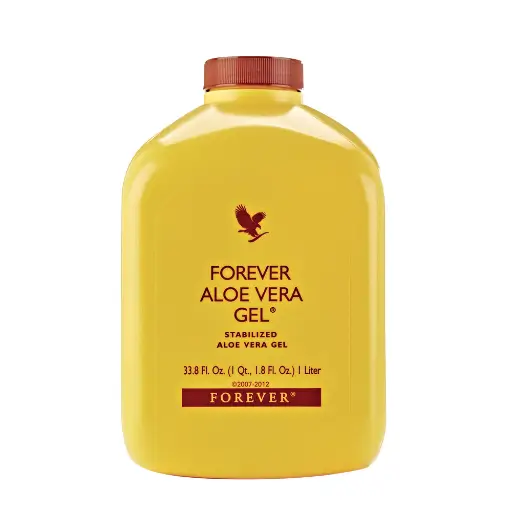
Forever Aloe Vera Gel
Explore the benefits of Forever Aloe Vera Gel® for daily wellness and digestion
- Forever Supergreens™: Struggling to eat the rainbow every single day? Supergreens is like a nutritional insurance policy. It packs a potent blend of over 20 fruits, vegetables, superfoods, and aloe. It includes key players like spinach, kale, broccoli, plus spirulina, barley grass, and grape seed extract, delivering a concentrated dose of antioxidants, vitamins, and minerals to support pH balance, immunity, natural energy levels, and antioxidant defenses. It’s an easy way to boost your phytonutrient intake.
Forever Supergreens
Boost your phytonutrient intake effortlessly with Forever Supergreens™
- Forever Lycium Plus®: This powerful blend features Lycium fruit (goji berry), a traditional ingredient known for centuries in China for promoting longevity and vitality, combined with licorice flavonoid extract. Lycium is an exceptional source of phytonutrients and antioxidants, helping combat oxidative stress throughout the body. Licorice flavonoids further enhance these antioxidant capabilities. It’s targeted support for cellular protection.
Forever Lycium Plus®
Support your gut microbiome with Forever Lycium Plus
Pillar 2: Gut Health Heroes – The Epicenter of Wellness
Your gut is far more than just a digestive tube. It houses trillions of bacteria (the gut microbiome) that influence everything from your immune system (about 70% resides in the gut!) and mood (the gut-brain axis) to nutrient absorption and inflammation levels. Nourishing your gut is fundamental to overall health.
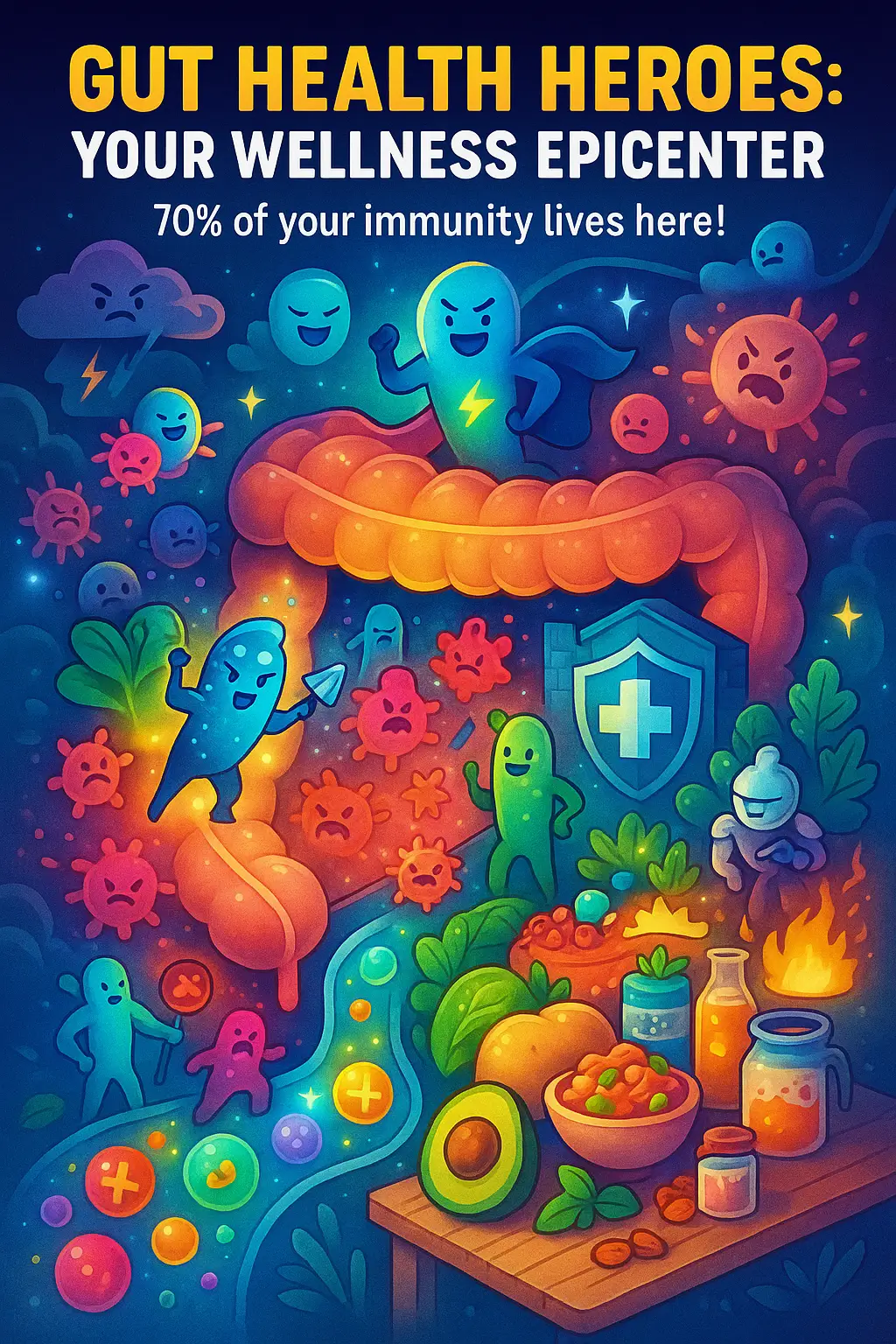
- Legumes (Beans, Lentils, Chickpeas, Peas):
- Why They’re Foundational: These are nutritional powerhouses – excellent sources of plant-based protein, packed with both soluble and insoluble fiber, and rich in minerals like iron, magnesium, potassium, and folate.
- The Science: The high fiber content feeds beneficial gut bacteria, promoting a diverse and healthy microbiome (Gut Microbes, 2017). Soluble fiber helps lower LDL (“bad”) cholesterol and stabilize blood sugar levels, reducing the risk of heart disease and type 2 diabetes (American Journal of Clinical Nutrition, 2014).
The combination of protein and fiber promotes satiety, aiding weight management. As Anastasia Snelling emphasized, their inclusion lowers risk for numerous chronic diseases. Lentils, highlighted by Matthew Landry, PhD, RDN, are particularly rich in iron and versatile in cooking. - Practical Tips: Add beans or lentils to soups, stews, salads, and chili. Make hummus from chickpeas. Replace some or all ground meat with lentils in dishes like spaghetti sauce. Worried about gas? Start with smaller portions, rinse canned beans well, try lentils (often easier to digest), and know that your system often adjusts over time. Soaking dried beans overnight also helps.
- Whole Grains (Oats, Barley, Quinoa, Brown Rice, Whole Wheat Bread/Pasta):
- Why They’re Foundational: Unlike refined grains (white bread, white rice) stripped of their bran and germ, whole grains retain their fiber, B vitamins, minerals (magnesium, selenium, zinc), and phytonutrients. Oats and barley are particularly rich in a soluble fiber called beta-glucan.
- The Science: Beta-glucan is well-documented for its cholesterol-lowering effects (Nutrition Reviews, 2011). The high fiber content aids digestion, promotes satiety, and helps regulate blood sugar.
Consuming whole grains instead of refined grains is consistently linked to lower risk of heart disease, type 2 diabetes, and certain cancers (BMJ, 2016). Barley, as Hannah Brady, RDN, noted, also provides B vitamins and minerals important for energy metabolism.
For those with gluten sensitivity (not celiac disease), naturally fermented sourdough bread can be easier to digest due to the breakdown of gluten and carbohydrates during fermentation. - Practical Tips: Start your day with oatmeal (steel-cut or rolled oats are best). Add barley to soups or salads. Choose brown rice or quinoa instead of white rice. Look for bread and pasta labeled “100% whole wheat” or “whole grain” with minimal added sugar and recognizable ingredients. Erin Holley, RD, praised oats for their versatility and fullness factor.
- Fermented Foods (Yogurt with Live Cultures, Kefir, Kimchi, Sauerkraut, Miso, Tempeh):
- Why They’re Foundational: Fermentation uses microorganisms (bacteria, yeast) to transform food. This process can create new beneficial compounds, increase the bioavailability of nutrients, and, crucially, populate the food with probiotics (live beneficial bacteria).
- The Science: Probiotics directly support a healthy gut microbiome, helping to crowd out harmful bacteria, strengthen the gut barrier, and modulate the immune system (Gut Microbes, 2021).
A healthy gut microbiome is increasingly linked to better mental health via the gut-brain axis. Kimchi, nominated by Hannah Brady and Matthew Landry, is a prime example, offering probiotics plus vitamins and antioxidants from the fermented vegetables.
Cheese, as Mantzioris pointed out, can also be a source of probiotics depending on the type and production method (look for aged, unpasteurized options if safe for you). Tempeh, made from fermented soybeans, provides probiotics along with high-quality plant protein. - Practical Tips: Choose plain yogurt/kefir and add your own fruit/sweetener. Add kimchi or sauerkraut as a side dish or condiment (look for unpasteurized versions in the refrigerated section for live cultures). Use miso paste in soups or dressings. Incorporate tempeh as a meat substitute.
- Seeds (Flaxseeds, Chia Seeds, Hemp Seeds, Pumpkin Seeds, Sunflower Seeds):
- Why They’re Foundational: Seeds are tiny nutritional giants. Flax and chia are top sources of ALA omega-3 fatty acids and soluble fiber (forming a gel in liquid). Hemp seeds offer complete protein and a good balance of omega-6 and omega-3 fats. Pumpkin and sunflower seeds provide minerals like magnesium and zinc, plus healthy fats and fiber.
- The Science: The ALA omega-3s in flax/chia contribute to heart health (Advances in Nutrition, 2014). The lignans in flaxseeds, as mentioned by Brady, are phytoestrogens with antioxidant properties studied for potential roles in hormone balance and cancer prevention (Clinical Cancer Research, 2005). The fiber in seeds supports digestion and gut health.
- Practical Tips: Add ground flaxseed or chia seeds to oatmeal, smoothies, or yogurt (grinding flax ensures nutrient absorption). Sprinkle hemp seeds on salads or avocado toast. Snack on pumpkin or sunflower seeds.
Bridging the Gap: Supporting Your Gut Microbiome
While dietary fiber and fermented foods are essential, ensuring a robust and diverse gut microbiome sometimes requires extra support, especially after antibiotic use, during periods of stress, or if digestive issues persist.
- Forever Active Pro-B™: This is a cutting-edge probiotic supplement designed to reach your intestines effectively. It contains a blend of 8 billion CFU (Colony Forming Units) from six synergistic bacteria strains, carefully selected for their ability to survive stomach acid and colonize the gut. It also includes a prebiotic fiber (fructooligosaccharides – FOS) to nourish the probiotics.
Taking Active Pro-B can help promote a healthy digestive system, enhance nutrient absorption, and support immune function by fostering a balanced gut microbiome.
Forever Active Pro-B
Support your gut microbiome with Forever Active Pro-B™
- Forever Fiber™: Getting enough fiber daily (recommended 25g for women, 38g for men) can be tough. Forever Fiber provides a convenient way to boost your intake with 5 grams of soluble fiber per stick pack.
This proprietary blend dissolves easily in water or Aloe Vera Gel, supporting cardiovascular health, digestive function, weight management (by promoting fullness), and immune function (by feeding beneficial gut bacteria). It’s gluten-free and grit-free.
Forever Fiber
- Forever Aloe Vera Gel® (Again!): Its soothing and prebiotic-like properties make it a perfect companion for gut health, complementing the actions of probiotics and fiber.

Forever Aloe Vera Gel
Explore the benefits of Forever Aloe Vera Gel® for daily wellness and digestion
Pillar 3: Quality Proteins & Healthy Fats – Building Blocks & Brain Fuel
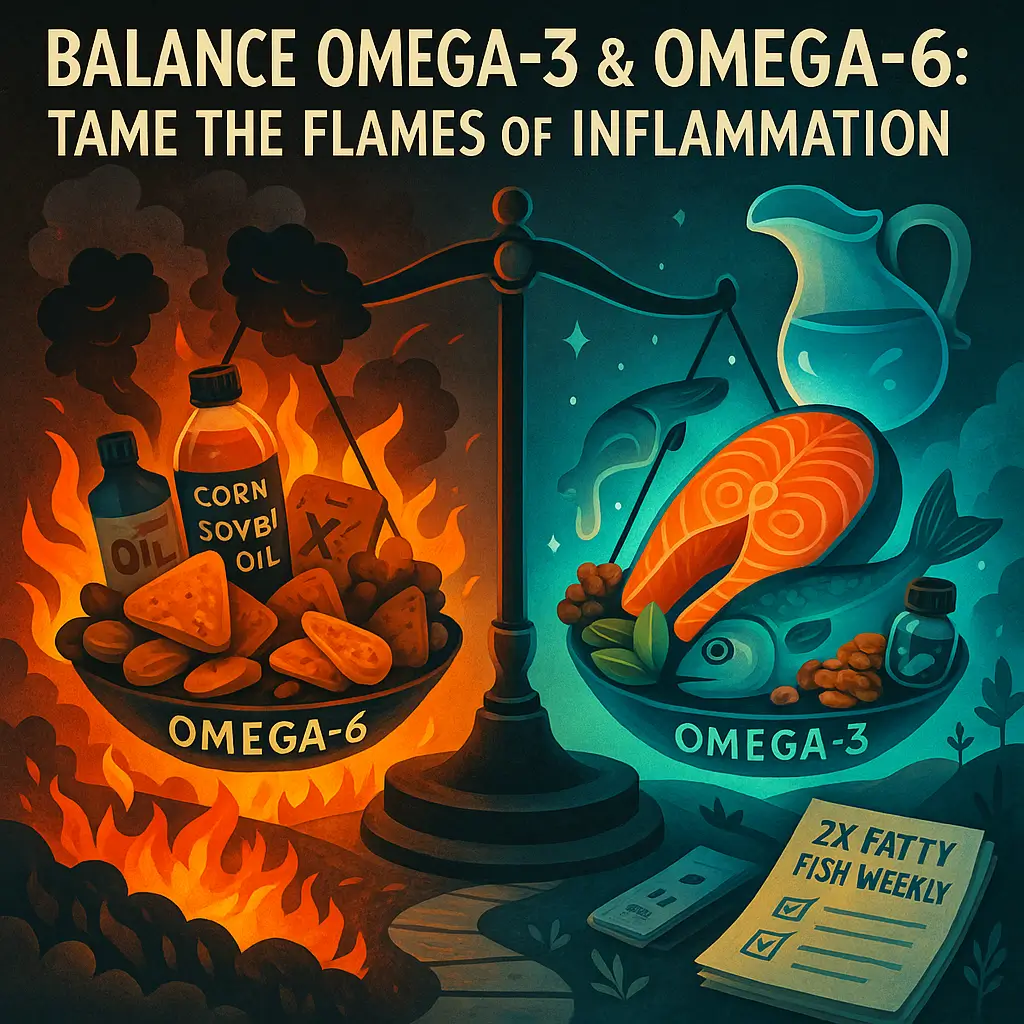
Protein provides the essential amino acids needed to build and repair tissues, make enzymes and hormones, and support immune function. Healthy fats are crucial for cell membrane structure, hormone production, absorbing fat-soluble vitamins (A, D, E, K), and providing sustained energy. They are especially vital for brain health.
- Lean Proteins (Chicken, Turkey, Fish, Eggs, Legumes, Tofu/Tempeh):
- Why They’re Foundational: Provide essential amino acids without excessive saturated fat. Chicken/turkey are versatile options. Fish offers protein plus omega-3s. Eggs are a complete protein source. Legumes and soy products (tofu, tempeh, edamame) are excellent plant-based choices.
- The Science: Adequate protein intake is crucial for maintaining muscle mass (especially as we age), supporting metabolism, and promoting satiety, which aids in weight management (American Journal of Clinical Nutrition, 2015).
Choosing lean sources helps limit intake of saturated fat, linked to increased LDL cholesterol. Eggs, once villainized for cholesterol, are now recognized as nutritious; dietary cholesterol has minimal impact on blood cholesterol for most people (American Heart Association Science Advisory, 2019).
Pasture-raised eggs, as Lindsay Malone recommended, offer higher levels of omega-3s and vitamins A & E. Soy foods like tofu and tempeh provide high-quality complete protein, and contrary to old myths, research now suggests they may be protective against certain cancers (Cancer, 2019). - Practical Tips: Bake, grill, roast, or stir-fry chicken and turkey. Include fish 2-3 times per week. Enjoy eggs boiled, scrambled, or in omelets. Incorporate beans, lentils, tofu, or tempeh into meals regularly. Samantha Coogan, RDN, emphasized the versatility of chicken – don’t be afraid to season it well!
- Fatty Fish (Wild-Caught Salmon, Mackerel, Herring, Sardines, Anchovies):
- Why They’re Foundational: These are the best dietary sources of the long-chain omega-3 fatty acids EPA (eicosapentaenoic acid) and DHA (docosahexaenoic acid), which are critical for health.
- The Science: EPA and DHA are powerfully anti-inflammatory. They are essential for heart health – studies show they help lower triglycerides, reduce blood pressure, prevent plaque buildup, and decrease the risk of arrhythmias (Mayo Clinic Proceedings, 2019).
DHA is a major structural component of the brain and retina, vital for cognitive function and vision. Adequate intake is linked to reduced risk of depression, ADHD, and age-related cognitive decline, including Alzheimer’s disease (FASEB Journal, 2016).
As Lina Begdache highlighted, these omega-3s are key for brain maintenance. Choosing wild-caught salmon, as she suggested, often means less saturated fat and potentially fewer contaminants compared to some farmed varieties. - Practical Tips: Aim for at least two servings (3.5 oz cooked) of fatty fish per week. Grill, bake, or pan-sear salmon. Canned sardines or salmon are convenient and affordable options (choose packed in water or olive oil).
- Healthy Fats (Extra Virgin Olive Oil – EVOO, Avocados, Nuts, Seeds):
- Why They’re Foundational: Provide monounsaturated fats (MUFAs) and polyunsaturated fats (PUFAs), including omega-3s (from nuts/seeds) and omega-6s. EVOO also contains unique polyphenols with antioxidant and anti-inflammatory effects. Avocados offer MUFAs, fiber, and potassium. Nuts and seeds contribute healthy fats, protein, fiber, vitamins (like E), and minerals (like magnesium).
- The Science: Replacing saturated and trans fats with unsaturated fats (MUFAs and PUFAs) is strongly linked to improved heart health markers, including lower LDL cholesterol and reduced cardiovascular disease risk (Journal of the American Heart Association, 2017).
The polyphenols in EVOO, like oleocanthal, have anti-inflammatory effects similar to ibuprofen (Journal of Nutritional Biochemistry, 2019). Nuts are consistently associated with better heart health and longevity in large population studies (New England Journal of Medicine, 2013). - Practical Tips: Use EVOO (make sure it’s extra virgin for the highest polyphenol content, as Mantzioris advised) for salad dressings, drizzling over cooked foods, and low-to-medium heat cooking. Add avocado slices to toast, salads, or smoothies.
Snack on a small handful of nuts (almonds, walnuts, pecans) or seeds. Choose nut butters with minimal added sugar or oil. Store EVOO in a cool, dark place and use it within a reasonable timeframe after opening to preserve quality.
Bridging the Gap: Ensuring Optimal Fat Intake
While aiming for fatty fish twice a week is ideal, many people fall short. Furthermore, maintaining the right balance of omega-3s to omega-6s (modern diets are often too high in omega-6) is crucial for managing inflammation.
- Forever Arctic Sea®: This supplement provides a perfectly balanced blend of omega-3 fatty acids from fish oil (EPA and DHA) and calamari oil, plus oleic acid (an omega-9) from olive oil. The fish and calamari oils are sourced responsibly and undergo purification processes to ensure purity and remove contaminants like mercury.
Forever Arctic Sea supports key areas of the body, including the cardiovascular system, brain, eyes, and immune system by providing the crucial EPA and DHA that may be lacking in the diet. It helps balance the omega-3:omega-6 ratio, promoting a healthy inflammatory response.
Forever Arctic Sea
Ensure optimal Omega-3 intake for heart and brain health with Forever Arctic Sea®
- Forever Lite Ultra® (Optional Inclusion): If convenience or increased protein needs are a factor (e.g., for active individuals or those struggling with appetite), a high-quality protein shake can be useful.
Forever Lite Ultra provides 17 grams of soy protein isolate per serving (a complete plant-based protein) along with vitamins and minerals. It mixes easily with milk or a milk alternative for a quick, nutritious boost. (Mention vanilla/chocolate options).
Forever Lite Ultra
Pillar 4: Hydration & Foundational Support – The Unsung Heroes
These might seem basic, but they are absolutely non-negotiable for optimal function.
- Water:
- Why It’s Foundational: Every single cell, tissue, and organ in your body needs water to function. It’s involved in nutrient transport, waste removal, temperature regulation, joint lubrication, and countless metabolic processes.
- The Science: Even mild dehydration can impair physical performance, cognitive function (concentration, alertness, short-term memory), and mood (Journal of the American College of Nutrition, 2012). Chronic dehydration can contribute to headaches, fatigue, constipation, and kidney problems.
- Practical Tips: Carry a water bottle. Sip throughout the day, don’t wait until you’re thirsty (thirst means you’re already slightly dehydrated). Listen to your body – needs increase with heat, exercise, and illness. Herbal teas and water-rich foods (like cucumber, celery, watermelon) also contribute.
- Coffee & Tea (in moderation):
- Why They’re Foundational (conditionally): Coffee and tea (especially green tea) are rich sources of antioxidants and bioactive compounds.
- The Science: Moderate coffee consumption (typically defined as up to 3-5 cups/day) is linked in observational studies to a lower risk of type 2 diabetes, heart disease, certain cancers, Parkinson’s disease, and overall mortality (Annual Review of Nutrition, 2017), as Lindsay Malone mentioned.
Green tea is packed with polyphenols like EGCG, known for potent antioxidant and anti-inflammatory effects (Chinese Medicine, 2010). These benefits likely stem from the rich array of antioxidants and other compounds that protect cells from damage. - Practical Tips: Be mindful of caffeine intake – too much can cause jitters, anxiety, and sleep disruption. Avoid adding excessive sugar or creamy syrups. Listen to your body; some people are more sensitive to caffeine than others. Pregnant individuals and children should limit or avoid caffeine. Choose organic coffee when possible to minimize pesticide exposure.
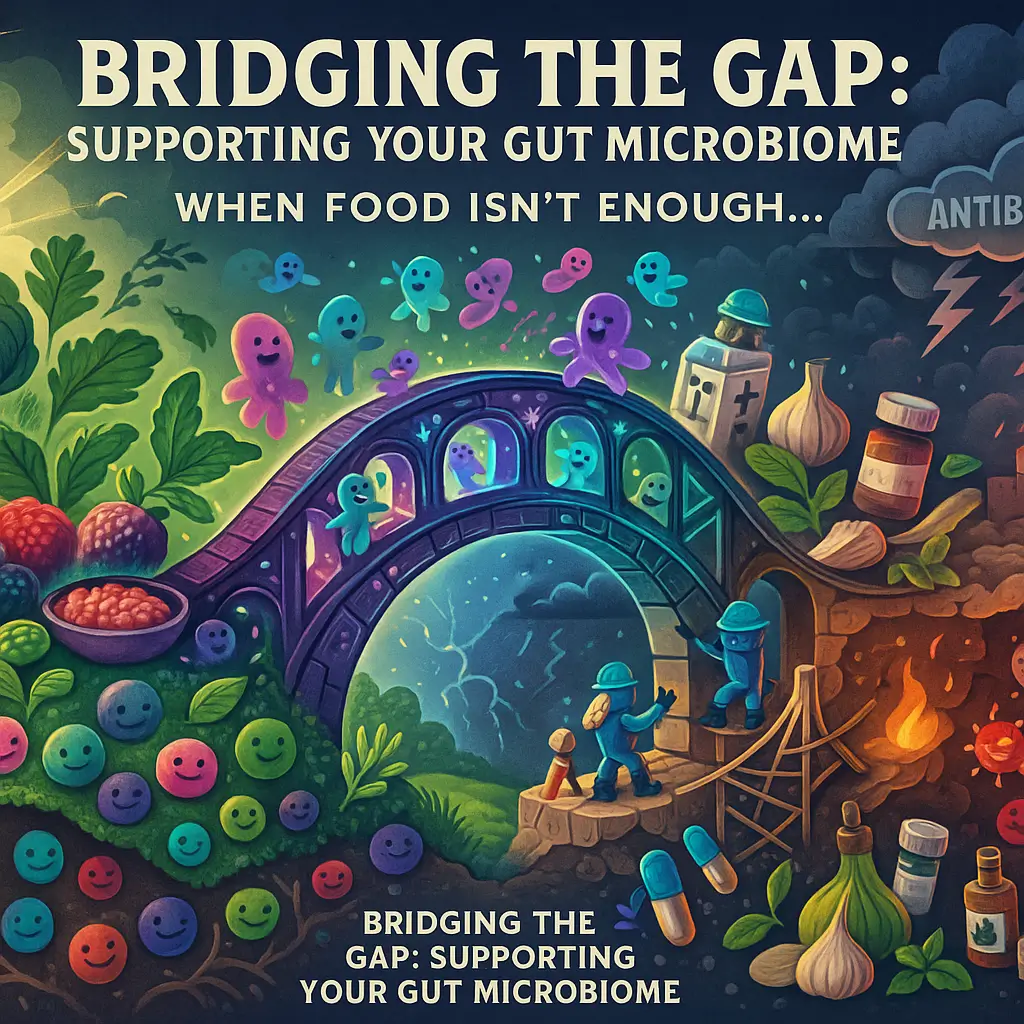
Bridging the Gap: Ensuring Your Baseline Needs Are Met
Even with a great diet, ensuring you consistently hit all your micronutrient targets can be tricky due to factors like soil depletion affecting food nutrient levels, increased needs during stress, or individual absorption issues.
- Forever Daily™: This is your comprehensive daily multivitamin and mineral supplement, designed to fill nutritional gaps and provide foundational support. It delivers 100% of the recommended daily intake for essential vitamins and key minerals.
What sets it apart is the inclusion of the AOS Complex® (Aloe Oligosaccharides) to enhance nutrient absorption, plus proprietary fruit and vegetable blends (FVX20) and bioflavonoids for added antioxidant support. It’s a smart way to ensure your baseline nutritional needs are covered every day.
Forever Daily
Cover your baseline nutritional needs with Forever Daily™
- Forever Aloe Vera Gel® (One more time!): Beyond digestion and specific nutrients, pure Aloe Vera Gel contributes to overall hydration and provides a synergistic base that helps your body utilize other nutrients more effectively. It’s the ultimate foundational support beverage.

Forever Aloe Vera Gel
Explore the benefits of Forever Aloe Vera Gel® for daily wellness and digestion
Putting It All Together: Practical Application & Mindset for Success
Okay, we’ve covered a lot of ground. You now have a clear picture of the foundational foods that truly nourish your body. But knowledge without action is just… knowledge. Here’s how to translate this into your daily life:
- Focus on Addition, Not Subtraction: Instead of thinking about what to cut out, focus on adding more of these foundational foods to your plate. Add spinach to your eggs, have a side salad with lunch, snack on berries, swap white rice for quinoa. Small additions compound over time.
- Embrace the 80/20 Rule: Remember, it’s about consistency, not perfection. Aim for foundational eating 80% of the time, and allow yourself flexibility for the other 20%. This prevents burnout and makes it sustainable. Forgive yourself the occasional indulgence – it’s part of a healthy relationship with food. As Samantha Coogan wisely said, “Food is meant to not only fuel and nourish our bodies, but also to be shared and enjoyed.”
- Plan & Prep (Even Just a Little): You don’t need complex meal plans. Just thinking ahead can make a huge difference. Wash lettuce when you get home, cook a batch of quinoa or lentils for the week, hard-boil some eggs, chop veggies for easy snacking or stir-frying. Even minimal prep makes healthy choices easier when you’re tired or busy.
- Read Labels: Become a savvy consumer. Look for short ingredient lists with recognizable foods. Be wary of hidden sugars, excessive sodium, and highly processed ingredients, especially in packaged foods and even things like non-dairy milks (always check for added sugar!).
- Listen to Your Body: Pay attention to your hunger and fullness cues. Eat when you’re hungry, stop when you’re comfortably full (not stuffed). Notice how different foods make you feel – energized or sluggish? This intuitive feedback is powerful.
- Prioritize Whole Foods: Whenever possible, choose foods in their most natural state. An apple is better than apple juice; grilled chicken is better than chicken nuggets. Processing often strips nutrients and adds unwanted ingredients.
- Consider Organic (Wisely): Organic foods generally have lower pesticide residues and may have slightly higher levels of certain nutrients. If your budget allows, prioritize organic for items on the “Dirty Dozen” list (foods with highest pesticide load) or choose based on availability and preference. Don’t let a lack of organic options stop you from eating plenty of conventional produce – the benefits of fruits and vegetables far outweigh the potential risks for most people.
- Personalize: Your needs may vary based on age, sex, activity level, health goals, and any existing conditions. If you have specific health concerns or dietary needs, consult with a healthcare professional or a registered dietitian for personalized advice.
Bridging the Gap: Why Smart Supplementation Makes Sense in the Modern World
You might be thinking, “If I eat all these healthy foods, why would I need supplements?” It’s a valid question.
In an ideal world, a perfectly balanced diet might provide everything we need. However, we don’t live in an ideal world. Consider these factors:
- Soil Depletion: Modern farming practices have, in some cases, led to soil lower in essential minerals than it once was, meaning the food grown in it can be less nutrient-dense.
- Food Transport & Storage: Nutrients can degrade over time between harvest, transport, storage, and finally reaching your plate.
- Increased Needs: Stress, pollution, intense physical activity, illness, and certain life stages (like pregnancy) can increase your body’s demand for specific nutrients.
- Dietary Gaps: Let’s be realistic – even with the best intentions, consistently hitting optimal levels of every essential nutrient every single day through diet alone is challenging for most people. Omega-3s, Vitamin D, Magnesium, and certain B vitamins are common examples where intake often falls short.
- Absorption Issues: Individual factors can affect how well you absorb nutrients from food.
This is where strategic supplementation comes in. It’s not about replacing whole foods. It’s about filling the gaps and providing targeted support where your diet might fall short or where your body needs an extra boost.
Choosing high-quality supplements is crucial. Forever Living Products stands out because of its commitment to quality and purity:
- Vertical Integration: FLP owns its aloe plantations, manufacturing facilities, and distribution, allowing control over quality from plant to product to you.
- Focus on Aloe: With Aloe Vera as a core ingredient in many products, you benefit from its unique soothing, absorption-enhancing, and wellness-promoting properties.
- Science-Backed Formulations: Products like Arctic Sea, Active Pro-B, and Daily are formulated based on nutritional science to deliver effective ingredients in balanced ratios.
- Certifications: Look for certifications that attest to purity and quality (e.g., International Aloe Science Council seal).
By integrating foundational eating with targeted, high-quality supplementation like the FLP products we’ve discussed – Aloe Vera Gel, Supergreens, Lycium Plus, Active Pro-B, Arctic Sea, Daily, and potentially Fiber or Lite Ultra – you create a powerful synergy for supporting your long-term health and vitality.
Your Journey to Lasting Vitality Starts Now
Building a foundation of health isn’t about a quick fix or a radical overhaul overnight. It’s about making consistent, informed choices that nourish your body and mind, day after day.
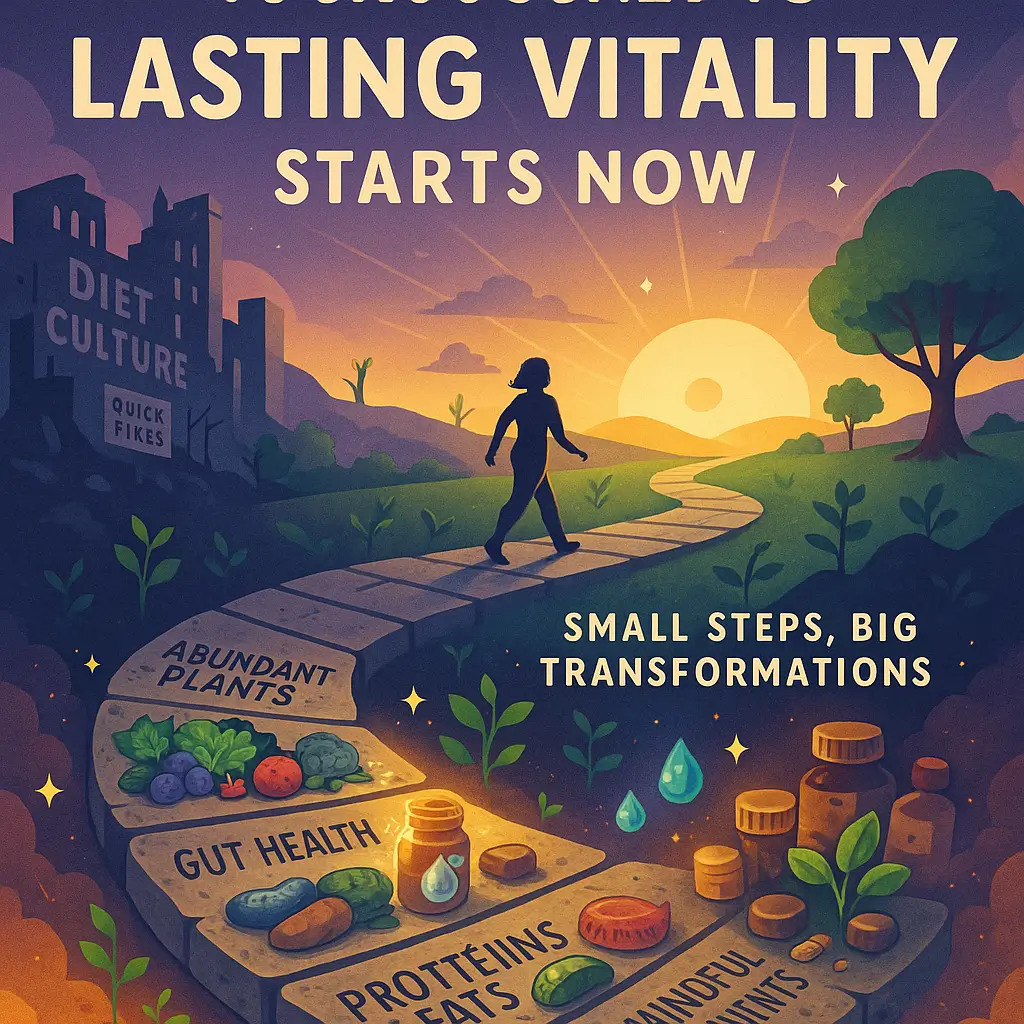
By focusing on these pillars – abundant plants, gut-loving foods, quality proteins and fats, hydration, and mindful supplementation – you can move away from the confusion of diet culture and step into a way of eating that feels empowering, sustainable, and truly supportive of your well-being.
You have the knowledge. You have the tools. The next step is yours. Start small, be consistent, and be patient with yourself. Your body is incredibly resilient and responsive – give it the right building blocks, and you will feel the difference.
Here’s to your vibrant health journey! Share your favorite foundational food or a small step you’ll take this week in the comments below!
Disclaimer: I am a Forever Business Owner and may earn a commission if you purchase products through the links provided in this article. The information presented here is for educational purposes only and is not intended as medical advice.
Always consult with a qualified healthcare professional before making any changes to your diet, supplement routine, or lifestyle, especially if you have underlying health conditions or are pregnant or nursing.
References:
- Estruch, R., Ros, E., Salas-Salvadó, J., et al. (2018). Primary Prevention of Cardiovascular Disease with a Mediterranean Diet Supplemented with Extra-Virgin Olive Oil or Nuts. New England Journal of Medicine, 378(25), e34.
- Schwingshackl, L., & Hoffmann, G. (2014). Adherence to Mediterranean diet and risk of cancer: a systematic review and meta-analysis of observational studies. British Journal of Cancer, 111(8), 1476–1487.
- Martínez-González, M. A., Salas-Salvadó, J., Estruch, R., et al. (2015). Benefits of the Mediterranean Diet: Insights From the PREDIMED Study. Progress in Cardiovascular Diseases, 58(1), 50–60.
- Morris, M. C., Tangney, C. C., Wang, Y., et al. (2015). MIND diet associated with reduced incidence of Alzheimer’s disease. Alzheimer’s & Dementia, 11(9), 1007–1014.
- Trichopoulou, A., Costacou, T., Bamia, C., & Trichopoulos, D. (2003). Adherence to a Mediterranean diet and survival in a Greek population. New England Journal of Medicine, 348(26), 2599–2608.
- Johnson, E. J. (2011). Role of lutein and zeaxanthin in visual and cognitive function throughout the lifespan. Nutrition Reviews, 69(9), 522–534.





